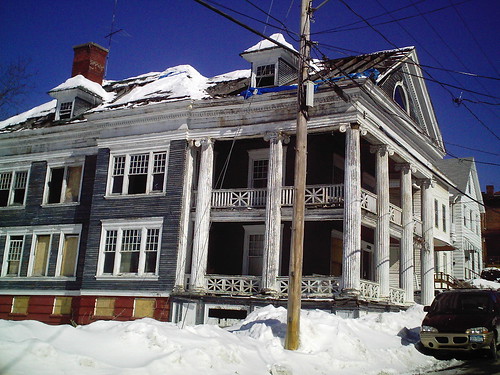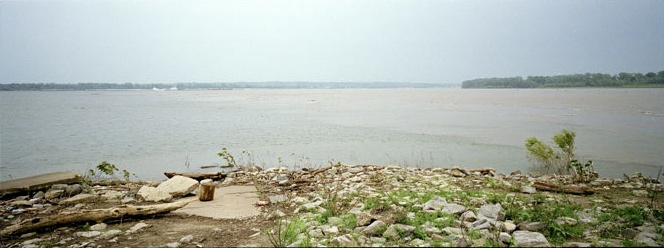"Anyone caught speaking Esperanto is thought crazy or headed for jail,
There'll be peace in the wilds of West Texas where the sun and the sky prevail."
It started off like a whimper, maybe not entirely for all involved but for the Son Volt/Tupelo purists, it was a head-scratcher. I never once expected Mr. Farrar to pull out a Tupelo classic but somewhere around the fifth or sixth song of the set, he plunged into "Grindstone," the lead track off the lesser known, March 15-22, 1992. My dates may be askew but the album remains intact in its obscurity. I say obscurity because it is seldom mentioned as being paramount to No Depression, Still Feel Gone or Anodyne. But the real story was that this show was a display of the landscape of his more recent frontiers, Okemah and The Search. So if you haven't been paying much attention, you felt a little out of sorts. But it was vintage Son Volt music, and that's ultimately what mattered on this particular night. Put down your ego, and let the oracle blow his breeze. Jay's not wisdomatic, no, I think he just writes about things he sees, and imagines from real life and the stuff which he might feel deserves homage. "Cocaine and Ashes" case in point.
But then you watch him stepping up to the microphone with his burnt brown acoustic and begin to moan out his lyrics like they were matter of fact. He doesn't smile, not once, mostly because he seems to always have to come back to himself to realize that there are other people in his vicinity. Then, there is an almost apologetic haste in moving on to the next song, the next time zone. Maybe we speak of these peculiarties too much, he's a musician, and all it takes is a few hours with him to know that he's a damn good musician.
I had forgotten just how spacey things could get with Son Volt music, how you couldn't really pen it into a country slot, or a rock slot or even an alt-country slot. None of that matters when they take the stage, because they seem to just play it how they feel it. Why I would even bother to critique their work has little to do now with my own preferential leanings toward Jay Farrar. I sometimes chuckle at his occasional (often occasional) lyrical pretensions, and his voice is a like a broken cuckoo clock behind unwound or an upright bass being unstrung. It's not that alone, though those conditions certainly do exist.
It was more a feeling that welled up in me, as I watched the bowl-cut headed maestro spinning his magic before a crowd of maybe 300-400, if that. This was a feeling of adoration on end, amazement on another, and a strange exception, which was pride. Pride because I was at last in the presence of an undeniable greatness. I'll never really fully understand his lyrics or creative process. But this adoration, pride at witness a true musician in his cups, comes from an insight that Mr. Farrar appears to be contributing to the library of folk tradition that continues to grow as the world of music turns. It seems inevitable that his songs will be sung by our children and our children will no doubt teach them to their children. Okemah & the melody of Riot, the name is ambitious, bold in its echoing connotations, but there it was right in front of us, as he slung guitars around his neck, strapped the harmonica shelf to his shoulders, and sang sometimes with the same intonations as Woody Guthrie. At least, with a sullenness the old horse would no doubt show appreciation for.
I've struggled at times with the strains of Guthrie, but it doesn't seem like Farrar ever has. I've always marvelled at his taste and ear for the beginnings of Americana music. And the aftermath thereof. I remember hearing an episode of the radio program, E-town where Son Volt performed several songs for the airwaves. Intermittently, the host, Nick Forester, asked Jay and some of the members of the band some leading questions regarding their understanding of the roots of the music which they played...it was all summed up when the band gathered together with Nick & Helen Forester and Josh Rouse, who was also featured that night and played Townes Van Zandt's "White Freight Liner Blues". It foolish to think, but I imgaine Mr. Farrar might have begun to think at a time like that that he had arrived. Any aspiring American rock star would have and should have.
Tuesday, July 07, 2009
Subscribe to:
Post Comments (Atom)





No comments:
Post a Comment